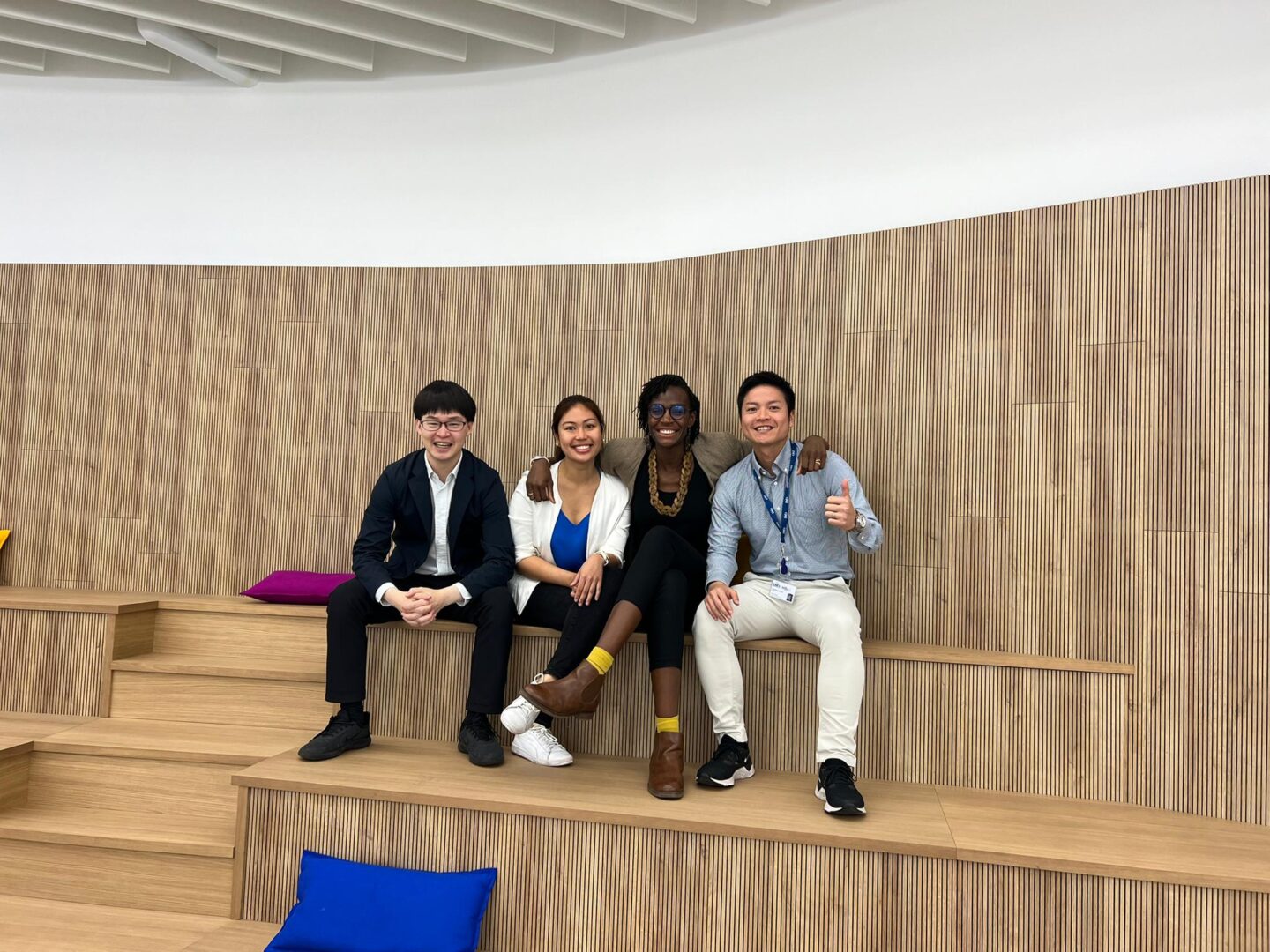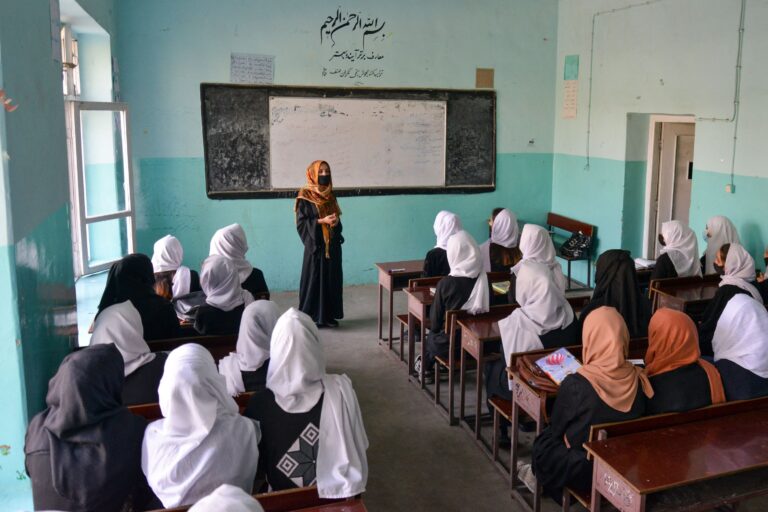
This wasn’t your typical International Consulting Project (ICP). There was no business model to scrutinize, market analysis to conduct, or new product for which to devise a growth strategy. Instead, a group of MBAs were asked to apply their business skills to solve one of the most complex humanitarian crises on the planet: how to safely provide education to girls in Afghanistan who have been banned from studying by the Taliban when they returned to power in 2021.
With the world facing increasingly complex and interconnected crises, there is a growing need for collaboration between non-traditional players, said Louise Muhdi, an Affiliate Professor of Innovation and Strategy who was the faculty advisor for the ICP.
“This was an unusual ICP looking at solving a real-world humanitarian project,” said Muhdi, who researches ecosystem collaboration. “The students learned there was no straightforward answer. They first had to understand their role, and the value they could add, before coming up with the solution.”
Before the Taliban takeover in Afghanistan, 3.7 million children were out of school – most of them girls. When the Taliban banned girls from attending school beyond the sixth grade in March 2022, they excluded an additional 1.25 million girls from education. In a further blow, in December 2022 they also banned women from attending university.
Nasir Andisha, Afghanistan’s permanent representative to the United Nations in Geneva, approached IMD and asked if they could help explore what existing technologies and platforms were available to help girls in their final two years of secondary education graduate.
“For me, this was a huge pilot project for the world to see if technology and IT could be put to use in a positive and fruitful way,” said Andisha. “If taken further and supported by a network of business, IT, and non-governmental organizations, I believe there is huge potential to innovatively address this unprecedented humanitarian crisis facing women and girls in Afghanistan.”

Over the course of seven weeks, the ICP team conducted interviews with more than 50 stakeholders to compile an overview of the organizations both within and outside Afghanistan that were working to help provide access to education.
Taking into consideration the security of the girls, access to technology, and the need to provide a diploma that was internationally recognized, the MBAs came up with recommendations.
Given the constantly changing political landscape and the immense volatility, uncertainty, complexity, and ambiguity related to the project, the ICP taught the students to come up with concrete suggestions that were agile and flexible.
For example, the team originally wanted to propose a hybrid solution, working with education centers in Afghanistan as well as online technology providers. However, following a suicide bombing in September 2022 at an education center in Kabul which killed over 25 people, they realized this option was unsafe and moved to an online-only approach.
In addition, after the Taliban backtracked on a plan to allow girls aged over 13 to return to school, it became clear that there was need for a long-term sustainable solution, not just a temporary measure, said Andisha.
Projects beyond profit maximization
ICPs have long been a core part of the IMD MBA. Over seven weeks, students work full-time on an assignment to provide concrete action plans for clients’ strategic solutions.
With sustainability moving up the corporate agenda, IMD revamped its MBA in 2022 with the aim of developing leaders who are equipped to not only tackle the challenges thrown up by climate change, but also those social issues which have come to the forefront in the wake of the COVID-19 pandemic.
Against this backdrop, there is growing interest in projects that go beyond profit maximization where students work with different stakeholders and use their business knowledge to deliver positive change across the world.
“Having an opportunity to be able to work with an organization that creates a difference, specifically with women and education, was really meaningful,” said Maria Monica Manganti, an MBA student from the Philippines who worked on the project along with peers from Japan and Kenya.
Manganti believes many of the challenges encountered by the team, such as conflict arising from cultural differences, working in a VUCA (volatility, uncertainty, complexity, and ambiguity) environment, and stakeholder management could equally be applied to the business world.
“Whatever industry you are in, there are new regulations and trends which are disrupting the status quo such as the way digitalization is transforming the business agenda. For us, it was important to be flexible and agile with our solution. I believe this is also the same with business.”
At the same time, the ICP underscored the advantages of bringing a different perspective – the view of business school students – to a non-traditional problem. In the growing impact economy, a range of players including humanitarian and development actors, investors and enterprises are working together to power economic growth while solving social and environmental challenges.
“There are a lot of actors in the humanitarian space and it is getting quite crowded. They all want to create value and help, but the co-ordination is often lacking,” said Muhdi. “The students realized they could add value by bringing transparency where it is needed and by helping the client to open up his perspective.”


